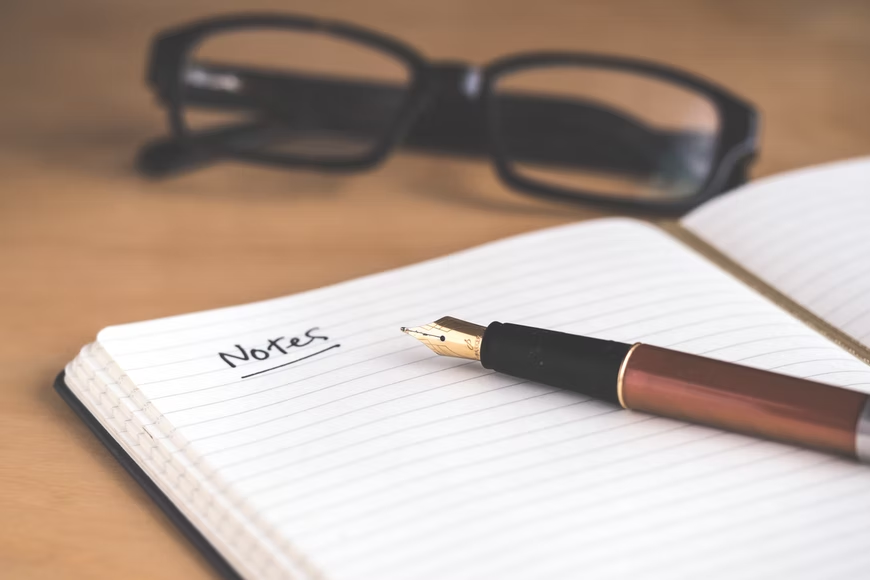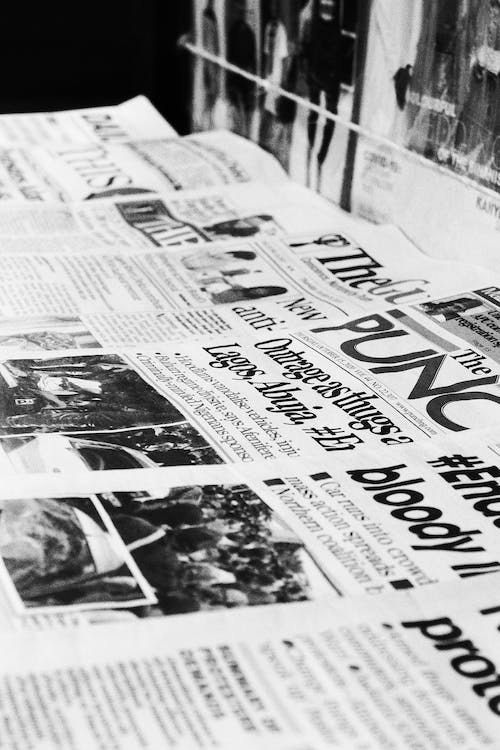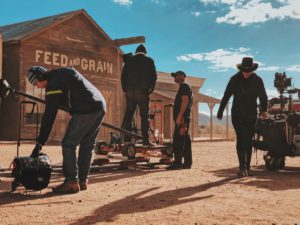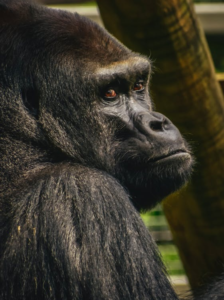Investigative journalism is uncovering topics that are hidden, either intentionally or unintentionally, behind a tumultuous mass of facts and circumstances — the study that exposes all pertinent information to the public.

Investigative journalism is a branch of journalism in which reporters conduct in-depth investigations into a specific topic of interest, most often a crime, government corruption, or corporate misbehavior. An investigative reporter may spend months or even years researching and writing a report. Newspapers, news networks, and freelance journalists undertake most investigative reporting. However, some practitioners prefer their work as “watchdog journalism” or “accountability reporting.”
The old phrase that the pen is mightier than the sword is accurate in investigative journalism when indulgences of money, corruption, or dominance are exposed to safeguard public duty or interest.
What exactly is investigative journalism?
Investigative journalism primarily comprises some or all of the following elements:

- Investigate social and legal issues.
- Document analysis includes examining legal papers, public records, and financial information.
- Several in-depth interviews, both with on-the-record and anonymous sources.
- Technical details, research, and physical examination of specialized equipment
- Exploration of data
- Use subscription-based tools to conduct research.
- Research that takes weeks, months, or even years to complete.
What Is Investigative Journalism? – David E. Kaplan
Why is investigative journalism important?
Investigative journalism is focused on bringing influential individuals, officials, criminals, companies, and states accountable for their activities. By exposing corruption and malpractice, investigative journalism ensures that no one is above the law. It is a profoundly democratic practice founded on truth, freedom, and fairness.

Investigative journalism also highlights underrepresented populations, giving the voiceless a much-needed platform. Historically, this has resulted in reforms in the law and cultural attitudes, resulting in healthier societies with more people treated with dignity and respect. For example, in 1887, Elizabeth Seaman, a writer at Joseph Pulitzer’s New York World, best known by her byline Nellie Bly, pretended to be mentally ill to expose the horrible circumstances at New York City’s “Women’s Lunatic Asylum.” Seaman’s widely-read writings prompted a Grand Jury investigation and increased financing for mental health facilities.
Investigative journalism also promotes the public interest by conducting in-depth investigations and reporting on injustices. This is accomplished through investigative reports providing the necessary updates to readers, listeners, and viewers. As a result, investigative journalism functions as a public watchdog against the power abuse by individuals in positions of control. Just because the media is independent, persons in positions of authority cannot use it for personal benefit.
As a result, investigative journalism has become the public’s only shelter for learning the truth about concealed things. But unfortunately, the background of investigative justice is littered with revelations of hidden fraud, deception, terrorism, and bribery.
It is clear that without investigative media, this could have gone unnoticed for generations. Hence, investigative journalism acts as a platform for informing the public about what is going on in society.
Obsessive, illuminating, high-stakes: why investigative journalism matters
Investigative Journalism’s Cultural Aspects
Investigative journalism is critical to modern society’s cultural ideals. This is owing, among other things, to the significant role it plays in the evolution of society. With investigative journalism in play, today’s society is concerned about securing justice. You can trace the importance and influence of investigative journalism in the community to the information culture.

Investigative journalism’s instructive nature complements this. Investigative journalism has fueled a desire to learn more about what is going on in society. At the same time, the public’s perception of the media in this regard has skyrocketed.
As a result, society trusts the media to expose the truth behind many incidents. This has increased the media’s role because it is expected to obtain facts and disseminate them through investigative work.
Why Investigative Journalism Matters – Joseph Stiglitz
What distinguishes it from other types of journalism?
An investigative work of journalism does not read like a standard news item that follows the five W’s and one H. It also does not have to be as brief or utilize as clear a language. While there are no hard and fast guidelines for producing an investigative piece, with tone and language left to the individual’s narrative style, investigative journalism’s in-depth, critical nature lends it some broadly consistent features. Among the most important are:
- Long-form content.
- Utilize infographics, tables, and charts.
- Statistics or quotes are abundant.
- Even if these elements aren’t always there, the in-depth structure of investigative journalism causes the pieces to swing in those areas.
What Are the Factors of Investigative Journalism?
The following are the fundamental components of investigative journalism:

Thorough Investigation
Many days, weeks, or even years of study go into an investigative journalism report. It is the outcome of a journalist’s or a group of journalists’ tremendous efforts in producing and researching a large amount of data and documents. Before reaching conclusions, every bit of information is double- or even triple-checked with factual evidence.
Sequential
When dealing with such a massive volume of data, it is easy to become lost, confused, and overwhelmed. Investigative journalists work methodically and deliberately through mountains of data.
The process investigative journalists use to uncover the truth is comparable to that of a scientist. After receiving a tip, investigative journalists go deeper into data, and research theories, test hypotheses as they emerge, cross-check material with different sources, and eventually arrive at certain immutable realities.
Getting to the bottom of the story
The critical distinction between traditional and investigative journalism is that investigative reporting goes beyond the story’s surface features. Once the news has been reported, a typical journalist would be content to let it go.
However, the nature of an investigative journalist’s profession requires them to get to the truth behind the story, which means that the tale does not stop until the most hidden details are exposed.
Conducting interviews and verifying facts
To illustrate how an investigative journalist would tackle a subject, consider how they would cover a regular newsworthy event, such as a building catching fire.
A conventional journalist would travel to the site and gather information about an event:
- What
- Who
- Why
- Where
- How
Then, the next day, you’ll likely read or hear about a store that caught fire in the news.
An investigative journalist, on the other hand, will delve deeper. In pursuing the ‘true story,’ the investigative journalist may discover that the owners of the tiny store were frequently threatened with eviction by a corporate-like enterprise.
Investigating hypotheses
The investigative journalist will then begin connecting the dots, talking to people, conducting interviews, and poring over records to check the legitimacy of the hypothesis that the big business vying for the store’s space was directly implicated in the firestorm that tore down the store to the ground.
What is Investigative Journalism?
What is the role of an investigative journalist?
Investigative journalists frequently cover essential subjects such as societal phenomena or political events:

- A news director or editor usually assigns them a specific topic.
- Investigative journalists conduct research, discover and contact experts on the issue and other materials, coordinate interviews, and fact-check the data they obtain after getting their assignment. They next compile the data and write a story that expresses their findings and offers evidence.
- Investigative journalists proofread their work before sending it to the news director or editor to ensure proper style, spelling, and grammar usage.
Previously, investigative journalists only operated for print newspapers, but as technology has advanced, many journalists are now creating articles for social media platforms, blogs, or podcasts. Among the subfields in this area are:
Political journalism
Investigative journalists who work in politics fight to keep people aware of national and local political issues and candidates so that their readers can make intelligent voting decisions during polls.
International journalism
Investigative journalists who work in worldwide and international journalism research, study, and publish reports on current events all around the world, such as significant criminal cases. They can make content for news bulletins, the internet, and television, but they also create documentaries to tell their tales.
Broadcast journalism
This broad genre of journalism encompasses all investigative stories reported via electronic channels such as the internet, television, or radio. Broadcast journalism’s primary purpose is immediately delivering essential information and news to a large audience.
Print journalism
Investigative journalists use books, periodicals, and tabloids to tell their tales.
How Do You Get Started as an Investigative Journalist?
Investigative journalists typically work as freelancers or as assistants to editors in news organizations. In any case, investigative journalism stories significantly benefit society by revealing social and economic misbehavior.
If you are in the process of changing occupations or have yet to decide, you should follow the below steps to become an investigative journalist:

Get a bachelor’s degree
Most businesses demand a bachelor’s in journalism or a related subject, such as broadcast, marketing, English, internal relations, or political science. Required courses in journalism typically cover areas such as law and ethics, graphic journalism, communication, writing and editing, and reporting. Furthermore, several journalism programs have begun to include courses focusing on media, such as multimedia.
Employers often prefer candidates with relevant experience, and institutions frequently provide opportunities to get industry exposure and journalistic skills. For instance, you could:
- Participate in events: Students and graduates can enter investigative journalism competitions with their articles. Investigative journalism groups frequently sponsor these student competitions. If your article is awarded, you can publish the award on your CV and mention the writing samples in your portfolio.
- Make use of workshops and courses: Colleges and universities frequently give various services to aid their students’ academic development. You can augment your undergraduate curriculum and gain from industry specialists by taking courses and workshops from journalism schools and investigative journalism groups.
- Participate in extracurricular activities: Working for the school newspaper and undertaking an internship are the most acceptable ways for a student to obtain industry experience. If your university offers a career center, they may be able to assist you in finding and applying for a journalistic internship.
Create a portfolio
Employers typically seek a sampling of your work when seeking opportunities as an investigative journalist. A portfolio displays examples of your most excellent journalistic work, allowing prospective employers to assess your:
- Newsgathering abilities
- Technical expertise
- Writing style
Until you obtain professional experience, you can use items you wrote for your school newspaper, journalism classes, or internship. In addition, most journalism programs mandate the compilation of a portfolio as a graduation requirement.
Keep in mind that you keep your portfolio up to date with your most recent work and successes.
Acquire experience
When you first start as an investigative journalist, you should focus on gaining experience and honing your skills with a smaller radio station, television show, or newspaper. Finding work with a larger organization is generally more straightforward once you’ve got experience and built an impressive portfolio of your work.
Make it a habit to research.
A good investigative journalist is also a good researcher. Hence, improve your research skills to get to the bottom of stories, develop new angles, and establish theories.
So you want to be an investigative journalist?
What Qualifies an Investigative Journalist?
Here are a few characteristics of good investigative journalists:

Quantitative and logical thinking abilities
Investigative journalists function similarly to detectives. They are the true Sherlock Holmes.
Analytical and logical thinking takes work, but once you’ve mastered it, you’ll be linking dots like the majestic of inference, Mr. Sherlock Holmes himself.
Research Abilities
The process of investigative journalism requires extensive research. A reporter may have to read hundreds of pages to double-check a little piece of information.
Patience
The investigative journalist’s work is so broad, and you must be patient. A single investigative journalism assignment could take months, if not years, to finish.
Time Planning
Under the heavy pile of documents, it’s easy to become frustrated or lose track of time. On the other hand, a brilliant investigative journalist makes it a point to maintain systems throughout the project so that nothing gets mixed up.
Prominent Cases of Investigative Journalism Throughout Time
Browse through some of the most noteworthy incidents of investigative journalism to explore how watchdog duty has influenced history.

Ten Days at a Mental Institution (1887)
Nellie Bly, a teenage reporter, went undercover at a mental facility and uncovered its highly terrible conditions.
Almost instantly, the state of New York increased funding for mental health care by $1 million each year; her report also spurred a grand jury probe into the institution.
Moses Newson’s Feature on the Civil Rights Movement (the 1950s-1960s)
Moses Newson, a Black reporter based in Memphis, Tennessee, and Baltimore, Maryland, covered numerous pivotal civil liberties events, notably Emmett Till’s murder, school desegregation, and the 1961 Freedom Rides.
Newson’s reporting helped Americans comprehend and sympathize with the human rights movement’s ideals.
Silent Spring (1962)
Rachel Carson, a biologist, collated data on pesticide toxicity and exposed it to the American community in her book Silent Spring.
Despite initial criticism, particularly from chemical industries, Silent Spring‘s conclusions resulted in the ban on the chemical DDT. In addition, they sparked a green movement that led to the establishment of the “Environmental Protection Agency.”
The Massacre at My Lai (1969)
Independent investigative writer Seymour Hersh discovered the US military protection of the 1968 massacre of over 500 defenseless Vietnamese civilians in the town of My Lai by US soldiers.
Hersh’s research sparked unrest, which aided the expansion and impact of the peace movement across the United States. The sole person convicted in connection with the killings was Lt. William Calley, who led one of the three platoons implicated in the massacre; President Richard Nixon released him after spending three years, mainly under home detention.
“Bad Cash or Easy Money?” (1992)
Two Florida journalists investigated a sheriff’s interstate narcotics team and discovered that it confiscated $8 million from primarily Black and Hispanic motorists in 262 car stops. No charges were filed in 199 of these cases.
The Orlando Sentinel series and other exposés of similar practices prompted the Civil Asset Forfeiture Reform Act to be passed in 2000. It amended federal forfeiture legislation to allow proprietors of seized assets to be paid for legal fees incurred in successfully fighting the government. (However, it did not modify state law.)
Secret Surveillance on Muslim Communities (2011)
According to the Associated Press, the New York Police Department used a covert surveillance program to monitor and penetrate mosques and Muslim community organizations. However, the monitoring was based on nationality and religion rather than probable cause.
Three lawsuits were filed due to the inquiry. All were settled in favor of persons whom the NYPD had unlawfully wiretapped. The administration agreed to increased supervision.
Harvey Weinstein (2017)
The New York Times and The New Yorker released stories against Harvey Weinstein, a prominent Hollywood executive, within days of each other. More than 80 women have alleged Weinstein of sexual misbehavior or abuse since those articles were published, alleging that he used his status, riches, and network of aides to advance his sexual activity. According to the women, if they spoke against him, he threatened to terminate their careers.
Weinstein was charged with rape, aggressive sexual abuse, and illicit sexual encounter; investigations in other places are underway. In addition, the news reports sparked the #MeToo movement, in which women spoke out against elevated men who they claimed had sexually abused them.
Final Thoughts
Accountability is crucial to investigative journalism. It is the only way to rein in the extremes of power and wealth.
To achieve the big story, investigative journalism depends on considerable investigation, the rigorous pursuit of truth, freedom, and fairness, and an iterative process of hypothesis and testing. Moreover, for a democracy to function correctly, journalists must pursue their subjects independently of outside influence or manipulation to report significant social and economic concerns to the public.













